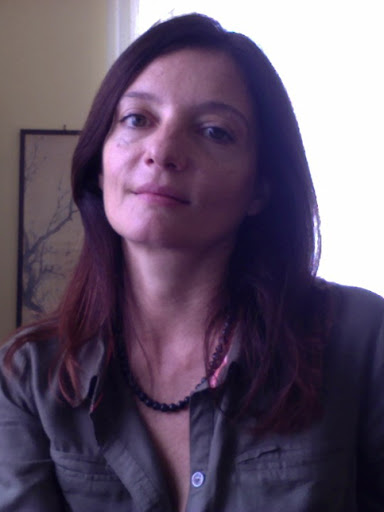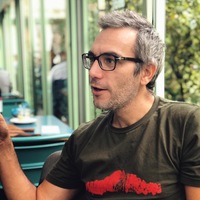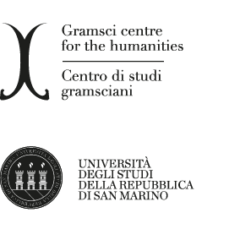To start a discussion on the digital revolution in the humanities, we asked some questions to our scientific advisors. Their answers will be published in eight issues between now and mid-October. Here, as first issue, those of Agnese Accattoli and Davide Bondì.
Agnese Accattoli
What generation do you feel you belong to?
Assuming that the question implies a reference to the so-called “digital generation”, I do not feel fully part of that generation, which I broadly identify as the generation of those born from the late 1980s onwards. But I don’t go back there for a short time, having been born in the mid-seventies. I feel part of the generation that lived before and after: me and my peers, very young but already adults, quickly metabolized all the phases of the transition from analog to digital. Our parents lived most of their lives in a completely analogue world, our children were born in an already digital world. My generation has played the role of a link in this evolutionary shift: in a way, we are the living representatives of an anthropological mutation of our species.
How and when did – in your personal experience – the digital revolution take place?
It happened roughly with the writing of the dissertation. The reference texts were still all on paper, but the search for sources was already partly carried out with the help of the Internet. At the same time I started to use e-mail systematically.
Is the “old” way of working still present in your life? (for example: do you write by hand? do you use paper archives that you keep in order? do you usually read in the library?)
It is present in part: I often still write notes by hand; I have a somewhat outdated paper archive, which I find increasingly difficult to use efficiently; I go to the library very often because most of the texts are not yet available in digital format; I go to the archives for the same reason, because the collections of documents are still mostly only available in paper format.
What do you think about the “digital” organization of scientific and cultural work? To what extent would you define the current way of working as new?
I think that the digital transformation (or revolution) of scientific-cultural work is still at an early stage, and we still have unpredictable scenarios ahead of us. Not only does the digital organization still need to be very much refined at a quantitative level, but it probably still needs to be defined from a qualitative point of view: finding its own structure, its own method, its own nature. For the moment, digital adds a lot to the “traditional” scientific approach, because it represents an extraordinary amplification of resources and a more immediate accessibility to sources, but it also has some contraindications, because the extension of perspectives steals space and time from the depth of research. What is put in crisis, I believe, in the new “way” of working, is precisely the concept of “tradition”, which provides for a linear, albeit branched, transmission of knowledge, while now seems to impose a horizontal, raggera mode of research, in a context of exploded knowledge, without order and without hierarchies.
In fact, I don’t think we can yet speak of a real digital organization of scientific-cultural work, but rather of a very rich and frightening “confusion” within which scientific-cultural work has found a powerful tool and new opportunities, but is still looking for a new identity.

Agnese Accattoli, Slavist from Roma Tre University, translator, historian and biographer, studies the cultural and political relations between Russia and Italy, especially in the 20th century.
Davide Bondì
What generation do you feel you belong to?
A middle generation, grown up with the traditional tools of study and work and catapulted within a decade (1990-2000) into a new world. My generation experienced the transition to the digital world, and had to match previous training strategies with new ones. It was a gradual transformation in the way we think, orient ourselves in our studies, acquire and process information. However, I have the feeling that the transition has taken shape in me in the sense of a graft rather than a real overturning, because I feel some forms of the past as still alive and structuring my way of behaving, acting, working.
How and when did – in your personal experience – the digital revolution take place?
As I was saying, in the early nineties, while I was attending university. In 1998, for example, I wrote my thesis on the computer and it was the first time I used it for study or research. Previously I used it in my spare time to play games although, as far as I remember, I did not have internet access or an e-mail address. I would say that the real leap into the new world came with the connection. Back then, the computer was no longer a “paperless typewriter” with an easier correction system, but a tool capable of doing new things. From that moment on it was a pressing and pervasive process, capable of penetrating different dimensions of the experience and integrating them (personal relationships, work, distraction, fun, free time, travel, contacts). Perhaps only in the strictly professional field, which in my case are studies, there remain techniques, strategies and behaviours of the past.
Is the “old” way of working still present in your life? (for example: do you write by hand? do you use paper archives that you keep in order? do you usually go to the library to read?).
Yes, I write by hand when I take notes from books to fix ideas immediately or in fragments. Handwritten and reworked data is often the framing and the hint of the next job. Indeed, I mainly use to photograph documents from paper archives which I then use from the computer. I usually go to the library because not all the documents or books I read are digitized. However, books in the digital version are mainly a source of consultation for me, while for an in-depth study I use paper books. Reading on paper has slower rhythms, allows for more in-depth study, creates a visual memory, allows you to return to the subjects many times. Short articles or essays can also be studied in a digital version, although I often prefer to print them out.
What do you think about the “digital” organization of scientific and cultural work? To what extent would you define the current way of working as new?
Digital material (databases, texts, encyclopaedias) considerably increases the possibilities of information and consultation, allows for orientation in a supranational bibliography and quick access to sources previously unavailable because they are kept in libraries that are difficult to reach or difficult to access. It also makes it easy to relate multiple sources (oral testimonies, films, music, materials from museums, memorials) and to integrate disparate data immediately. It allows the construction of a larger personal archive than those assembled using traditional methods. It facilitates the creation of institutional networks of scholars working in different parts of the world and the planning of international cooperation. Digital, however, also makes research more dispersive, often requiring a greater selection effort and can sometimes be a source of distraction. I use alternate strategies: generally speaking, the moment of conception is linked to the old way of working (reading books and paper sources, handwriting), the moment of acquiring information, sorting it and writing the research, and comparing the results achieved with other scholars is done through the use of digital devices.

Davide Bondì, historian of philosophy and Germanist, works on the problems of the theory of history, on the history of Italian and German culture between the nineteenth and twentieth centuries, on the surveillance of intellectuals.


One thought on “The digital revolution in the humanities seen at close quarters”